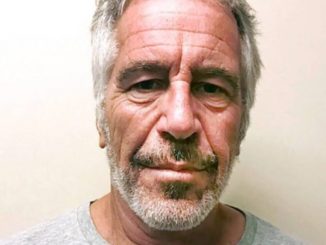
The grooming gangs of the UK blanketed the country. The elites turned their heads the other way.
| Published September 2, 2025
The Broader Backdrop: Rotherham’s Grooming Scandal and a System Still Failing
-
In August 2022, Bostan—initially convicted for rape in 2018—was granted parole. He was recalled in 2024 after being spotted near his victim’s home, barely a mile away, in breach of licence conditions.
-
The survivor (Elizabeth) was notified of her parole hearing rights only a week beforehand, highlighting chaotic victim notification processes.
-
Across the Rotherham scandal, deeper rot has emerged: new survivor testimonies allege that children abused by grooming gangs were also raped by serving police officers—some in marked police cars, one as young as 12. These revelations have spurred arrests of three former officers and renewed demands for external, independent inquiry into South Yorkshire Police.
-
These developments echo the findings of the Jay Report (2014), which estimated that at least 1,400 children were sexually exploited in Rotherham between 1997–2013. They underscore widespread institutional failures and the urgent need for accountability and reform.
The Case: Elizabeth v. Asghar Bostan
When the state turned its back, she turned to the law. In 2020, Elizabeth—one of the countless survivors of Britain’s grooming gang crisis—did what had never been done before: she launched a private prosecution against her rapist, Asghar Bostan. What followed was not just a personal quest for justice, but a five-year legal odyssey that exposed the failures of the parole system, tested the limits of victim resilience, and ultimately carved a path that others may now follow. Elizabeth v. Asghar Bostan stands as the first case of its kind in the UK, a blueprint showing how a single survivor, armed with determination and the right legal strategy, can achieve what institutions too often fail to deliver.
September 2020: Assembling the Legal Team
Elizabeth’s journey began with determination and doubt in equal measure. Refusing to let the system abandon her, she assembled a legal team willing to take on what many considered an impossible task: holding Bostan to account through private prosecution. This bold step transformed her from victim to legal pioneer.
October 2020: A Parole System Betrayal
Just weeks later, she faced the first of many betrayals. Despite the seriousness of his crimes, the parole system appeared tilted in Bostan’s favor. Elizabeth’s fight was no longer only about one rapist—it became a confrontation with a system that too often privileged offenders over survivors.
December 2020 – March 2021: The Transcript Battle
Critical trial transcripts, essential for mounting her case, were withheld and delayed. Elizabeth and her team spent months battling bureaucratic stonewalls, a reminder that access to justice is often obstructed not by the law itself, but by the machinery that controls it.
July 2021: Barrister Engaged
After months of groundwork, Elizabeth secured a barrister prepared to argue her case. This marked a turning point—the legal fight shifted from preparation to active litigation, raising the stakes for both sides.
November 2021: First Court Hearing
In November, the courtroom doors opened. Elizabeth’s voice was no longer just that of a survivor, but of a private prosecutor demanding accountability. The hearing was not the end of her struggle, but the beginning of a process that would test every limit of resilience.
August 2022: Rapist Freed Early
Despite the ongoing case, Bostan was released early from prison. For Elizabeth, this was a devastating reminder of how lightly the system treated violent offenders. Yet rather than derail her resolve, it deepened her conviction that survivors must take justice into their own hands when the state fails.
October 2022: Second Hearing for Extensions
Undeterred, Elizabeth pressed on, securing critical extensions that kept her case alive. Each procedural victory chipped away at the wall of systemic indifference.
January 2023: Claim Submitted
By the start of 2023, Elizabeth’s legal team formally submitted her claim—a decisive move that shifted the battle into its most crucial phase.
March 2023: Landmark Damages Award
In March, the courts delivered a historic ruling: a landmark damages award in Elizabeth’s favor. This was more than compensation—it was recognition of her suffering and validation of her unprecedented legal strategy. Survivors across the country now had proof that private prosecutions could succeed where public prosecutions had failed.
September 2023: Interim Charging Order
Securing justice on paper is one thing—enforcing it is another. Elizabeth obtained an interim charging order, ensuring Bostan’s assets would not slip beyond reach.
November 2023: Final Charging Order
Two months later, her persistence paid off again. The final charging order strengthened her hand, setting the stage for future enforcement.
January 2024: Parole Breach
Bostan’s breach of parole in January 2024 proved Elizabeth’s warnings correct. For survivors everywhere, it was a grim vindication of her claim that the parole system fails to protect victims.
May 2024: Second Fee Exemption
The financial toll of justice is crushing, but Elizabeth secured a second fee exemption, proving that even without wealth, survivors can pursue justice with the right determination and legal strategy.
October 2024: Order of Sale Issued
By October, the fight moved into enforcement. The court issued an order of sale, bringing the tangible prospect of restitution closer than ever.
June 2025: Parole Denied
In June 2025, the tide finally turned in Elizabeth’s favor. Parole was denied to Bostan—a rare moment of the system aligning with justice.
September 2025: Awaiting Final Enforcement
As of September 2025, Elizabeth awaits final enforcement. Her case is not only a personal victory but a blueprint for others: a demonstration of how perseverance, strategic litigation, and courage can overcome even the most entrenched failures of the justice system.

Asghar Bostan, jailed for nine years in 2018 for two counts of rape against a girl under 16, served four and a half years but has now been recalled for alleged breach of licence terms

Rotherham MP Sarah Champion has written to the Prisons and Probation Service raising concerns about the treatment of victim Elizabeth and her attacker’s release from prison

Bostan was jailed for nine years in 2018 and was held at HMP Leicester (file picture)
 Implications of Elizabeth v. Asghar Bostan
Implications of Elizabeth v. Asghar Bostan
1. A Precedent for Private Prosecution
Elizabeth’s case demonstrates that survivors are not powerless when the state fails. For the first time, a grooming gang rapist was brought to justice through private prosecution, showing that victims can compel accountability even against systemic resistance. This opens a new legal path for others who feel abandoned by public prosecutors.
2. A Challenge to the Parole System
The case exposes deep flaws in the parole process, where dangerous offenders are released early with little regard for victim safety. Elizabeth’s relentless pursuit—particularly after Bostan’s early release and subsequent breach—forces uncomfortable questions about whether the system protects the public or prioritizes offenders.
3. Recognition of Survivor Resilience
The landmark damages award in March 2023 was more than financial—it symbolized formal recognition of the trauma inflicted and the extraordinary perseverance required to obtain justice. For other survivors, it proves that persistence can lead to meaningful outcomes, even against entrenched bureaucracy.
4. Financial Barriers to Justice
Elizabeth’s struggle for fee exemptions highlights how justice often comes with a price tag. While her success shows that survivors can navigate the system with determination, it also underscores the urgent need for reform to prevent financial barriers from silencing victims.
5. A Blueprint for Future Cases
This case is now a blueprint for survivor-led justice: from assembling a legal team, battling for transcripts, engaging a barrister, securing damages, and enforcing compensation. Each step offers practical lessons for others who may follow her path.
6. Pressure on Political and Legal Reform
As the first of its kind, this case will likely add momentum to debates around grooming gang prosecutions, parole reform, and victim support. Politicians and legal reformers can no longer ignore the cracks in the system that Elizabeth’s fight has made visible.
 Overall Takeaway:
Overall Takeaway:
Elizabeth v. Asghar Bostan is more than a personal triumph—it is a historic breakthrough in survivor-led justice. Elizabeth proved that even when the system turns its back, a determined individual can hold offenders accountable and force the courts to listen. Her five-year legal odyssey not only delivered recognition and restitution, but also exposed the flaws of parole, the cost of justice, and the resilience required to overcome them.
The case stands as both a warning and a promise: a warning that systemic failures continue to endanger victims, and a promise that survivors can chart their own path to justice. It is, ultimately, a blueprint for change—showing that one survivor’s courage can spark a precedent powerful enough to reshape the fight against grooming gangs in Britain.





Be the first to comment